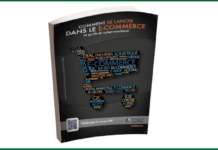The University will kick off its fall semester lecture series this Wednesday, with the Yes Men.
Mike Bonanno and Andy Bichlbaum, a.k.a. the Yes Men, will appear on campus Wednesday, Aug. 26. Their event will kick off the University Lecture Committee’s fall slate. The event will begin at 7:30 p.m. in the Second Floor Ballroom at the Iowa Memorial Union. Doors open at 7 p.m. The event is free and open to the public.

As the Yes Men, Andy Bichlbaum and Mike Bonanno’s brand of “laughtivism” has kept them in the headlines for nearly two decades. They have made three feature films the most recent, The Yes Men Are Revolting, was released in the summer of 2015. Their online Action Switchboard website was also recently launched as a platform for participatory direct action. By injecting humor into serious subjects, they provoke laughter and debate from audiences.
“We are HAPPY to be invited to this event! We hope students enjoy our speech and The movie!”
In conjunction with the evening lecture, a free screening of The Yes Men Are Revolting, followed by a question-and-answer session, will take place at 3 p.m. at FilmScene downtown. Other upcoming lectures for the fall semester include:
- Nina Totenberg, National Public Radio legal affairs correspondent, will present The Supreme Court and Its Impact on You at 5 p.m. on Wednesday, Sept. 9, in the Main Lounge of the IMU. This lecture is presented by the UI College of Law as part of their Lecture Series and with support from the Public Radio and the UI Public Policy Center.
- Retired CIA analyst Ray McGovern and former FBI agent and whistle blower Coleen Rowley will present Intelligence not Mistaken but Fixed for War at 7:30 p.m. Monday, Sept. 28, at the Englert Theatre in downtown City. This lecture is presented in partnership with Veterans for Peace and with support from the Center for Human Rights.
- Terry Gilliam, screenwriter, film director, animator, actor, comedian, and member of the Monty Python comedy troupe, will appear at 7:30 p.m. Friday, Oct. 23, in the Main Lounge of the IMU. This lecture is presented with support from FilmScene, the Obermann Center for Advance Studies, and the Bijou.
We understand the difficult decisions that legislators face this spring to put THE UNIVERSITY on the road to recovery
Public universities are large-scale incubators of the human capital that is essential to drive progress, presidents and board chairs said. They met with House Speaker, Senate President, House Republican Leader, Senate Republican Leader and the governor’s chief education adviser. Combined, public universities enroll nearly 200,000 students and send about 50,000 graduates into the workforce every year, each and every one an economic engine for the state and beyond, presidents and board chairs wrote in a letter shared with members of the General Assembly.

The letter cites a recent Economic Policy Institute study that found high-wage states are overwhelmingly those with a highly educated workforce. According to a 2014 U.S. Department of Labor report, workers with a bachelor’s degree earn 65 percent more than workers with a high school diploma.
The earnings gap is nearly double for workers with a master’s degree and almost 140 percent more for workers with doctoral or professional degrees. Public universities provide the broad-based education in liberal arts and humanities that produces well-rounded, civic-minded citizens.
Presidents and Board of Trustee chairs representing nine public universities met face-to-face with top legislative leaders Tuesday to urge support for higher education funding in the state’s fiscal 2016 budget. University President arranged the afternoon of meetings to make the case that proposed funding reductions for public universities would damage a key engine for the state’s economic growth and competitiveness.
“OUR proposal INCREASES funding for higher education BY 30% for the Following fiscal year”
Presidents and board chairs added in their letter to legislators: We believe that maintaining a robust, sustained, and predictable level of state support for our universities is absolutely essential for the future wellbeing and economic prosperity of our state. “Universities leverage state support by attracting more than $1.2 billion in external funding that supports the state’s economy today and fosters groundbreaking research-based innovation that creates the new businesses and jobs of tomorrow, the letter says.

More than 60 employers looking to hire students and alumni will be at the 25th annual All Majors Career Fair at the University. The fair, hosted by the UIC Office of Career Services, is from 10 a.m. to 2:30 p.m. at UIC Student Center East.
The free event is open to UIC students and alumni only. Students should bring their i-card for admission. Prospective applicants from any major will have the opportunity to gather information about companies and learn about full-time, part-time and internship positions from hiring officials. Representatives of firms from industries such as technology, engineering, financial services and education will be at the fair, as well as those hiring for jobs in criminal justice, management training, food service, retail and health care.

For more than 30 years, the University Lecture Committee has brought some of the world’s greatest thinkers to the UI campus. Speakers have included an impressive roster of national and international figures in science, politics, business, human rights, law, journalism, and the arts. The series is funded through student fees with additional private support, as well as campus and community partnerships.
The relief is only applicable to federal student loans’not the private ones into which thousands of Corinthian students were reportedly lured, allegations that are the subject of a pending federal lawsuit. That means American taxpayers are liable for millions of dollars to cover the cost of the relief’or more. As The New York Times reported on Monday, the government has never before opened debt relief to such a potentially large pool of students.
If every one of the approximately 350,000 students who took out federal loans to attend a Corinthian campus in the last five years applied for and received the relief, according to the Times and other news outlets, the cost could be as high as $3.5 billion. A recent in-depth Senate investigation found that taxpayers in a single year had invested $32 billion in for-profit colleges.












